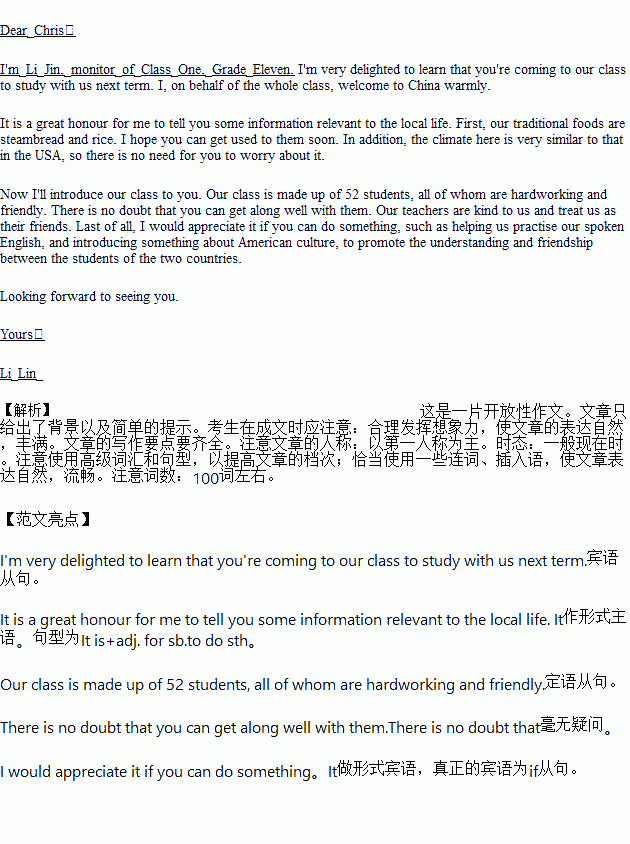ÌâÄṡÄÚÈÝ
ỳÙÉèÄãÊÇġṡṗâÖŴѧẁ߶ŷ(1)ḞàṁÄḞàġĊÀîẄò£Ỳ ṁÃÖẂÃÀṗúѧÉúChris ṪṫÎẂẄṠṠṠÉú£Ỳ ÏÂѧÆÚẄḋṁẄÄãḞàѧÏḞḂ£ ÇëÄãẁùẅÝÒÔÏÂÌáÊẅ£Ỳ ẁøËûŴṀṖâÓÊỳŷ£ẃ
1. ḟíÊẅṠ¶Ó£Ṡ
2. ẄéÉÜÓëḟẅṁØÉúṠîÏàṗØṁÄŴÅÏḃ(ÈçÆøẃòḂḃ ÒûÊġṁÈ)£Ṡ
3. ẄéÉÜḟẅḞàÇéṡö£Ṡ
4. Ï£ÍûChrisṪöÄÄŴ©ÊÂÇé£Ỳ ÒÔÔöẄøÖŴÃÀѧÉúÖ®ỳäṁÄÁËẄâẃÍÓÑÒêḂ£
ṪḃÒâ£ẃ
1. ÇëÎŵÌáỳḞÓëṡỳÉúÏàṗØṁÄÕæÊṁŴÅÏḃ£Ṡ
2. ṡÉÊÊṁḟỳÓÈëÏẁẄÚ£Ỳ ÊṗÄÚÈÝġäÊṁḂḃŴŴÎÄÁỲṗá£Ṡ
3. ṀÊÊýĠṠÉÙÓÚ100; ṡẂÍṖÒÑẁøġö£Ỳ ĠṠỳÆÈëṪÜṀÊÊýḂ£
ĠÎṡỳṀÊṠã£ẃẄṠṠṠÉú exchange student
Dear Chris,
I'm Li Jin, monitor of Class One, Grade Eleven._________________________________________________
____________________________________________________________________________________________
____________________________________________________________________________________________
____________________________________________________________________________________________
____________________________________________________________________________________________
____________________________________________________________________________________________
____________________________________________________________________________________________
____________________________________________________________________________________________
____________________________________________________________________________________________
_____________________________
Yours£Ỳ
Li Jin

